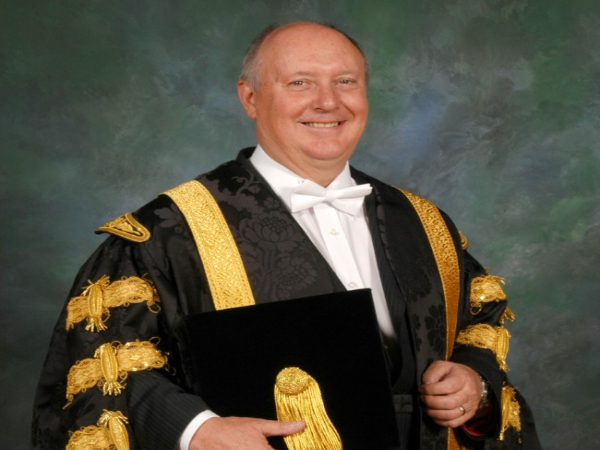Kenneth Calman: The Life, Legacy, and Impact of a Renowned Scottish Physician and Academic
Exploring the Journey of Sir Kenneth Calman — Surgeon, Oncologist, Educator, and Public Health Leader

Kenneth Calman is a distinguished Scottish physician, academic, and public servant known for his pioneering contributions in medicine and public health. Serving as Chief Medical Officer for both Scotland and England, he played a vital role in shaping health policies and medical education. His career spans clinical practice, research in oncology, university leadership, and public service commissions, making him a prominent figure in the UK’s healthcare landscape. Today, Kenneth Calman’s legacy continues through his influence on health policy, education, and cancer research.
Introduction
Sir Kenneth Charles Calman stands out as one of Scotland’s most influential medical figures of the 20th and 21st centuries. From his early days as a surgeon and cancer researcher to his leadership roles as Chief Medical Officer and university chancellor, Calman’s contributions have left an indelible mark on medicine and public health. This article delves into his life, career achievements, personal background, and ongoing influence — including facts about his age, family, net worth, and more.
Early Life and Medical Education
Born on December 25, 1941, in Glasgow, Scotland, Kenneth Calman’s early years set the foundation for a lifelong commitment to medicine and learning. Educated at Allan Glen’s School, he demonstrated early academic promise, leading to his enrollment at the University of Glasgow. There, Calman earned his medical degree in 1967 and continued to specialize in dermatology, earning a PhD in 1970. His early clinical work and research laid the groundwork for his later specialization in oncology.
Career in Surgery and Oncology
Calman’s initial clinical focus was surgery, with a keen interest in vascular surgery and transplantation. However, it was his pivot toward oncology that defined much of his career. In 1974, he became the first Professor of Oncology in Scotland at the University of Glasgow. His research contributed significantly to the understanding and treatment of cancer, combining clinical practice with groundbreaking academic work.
Leadership as Chief Medical Officer
One of Kenneth Calman’s most prominent public service roles was his tenure as Chief Medical Officer (CMO). He served as Scotland’s CMO from 1989 to 1991 and then as England’s CMO from 1991 to 1998. These years were marked by several public health challenges, including the Bovine Spongiform Encephalopathy (BSE) crisis, also known as “mad cow disease.” His measured and scientific approach helped guide public health policy during uncertain times, balancing public concern with evidence-based decision-making.
Academic and Administrative Contributions
After his government service, Calman transitioned to university leadership. He became Vice-Chancellor and Warden of Durham University from 1998 to 2006, where he championed research and innovation. In 2006, he was appointed Chancellor of the University of Glasgow, a prestigious role he held until 2020. Throughout this period, he continued to influence medical education, advocating for interdisciplinary learning and ethics in healthcare.
The Calman Commission on Scottish Devolution
In 2008, Kenneth Calman was asked to chair the Commission on Scottish Devolution, widely known as the Calman Commission. This commission was tasked with reviewing the powers of the Scottish Parliament and recommending changes to enhance devolved governance. His leadership resulted in recommendations for increased tax-raising powers for Scotland, contributing significantly to ongoing discussions about Scottish autonomy.
Kenneth Calman’s Personal Life and Family
Kenneth Calman is married to Ann Wilkie, and together they have three children. Among his children is Susan Calman, a well-known comedian and mental health advocate in the UK. Despite his professional stature, Calman has always maintained a strong connection to family and personal interests. He has a passion for Scottish literature and history, and he enjoys collecting sundials and cartoons, reflecting a multifaceted personality beyond medicine.
Kenneth Calman’s Age
As of 2025, Sir Kenneth Calman is 83 years old, having been born in 1941. His long and active career has spanned more than five decades, reflecting remarkable dedication to public service, academia, and clinical medicine.
Kenneth Calman’s Net Worth
While precise figures are not publicly available, Kenneth Calman’s net worth is estimated to be in the range typical for distinguished academics and public officials in the UK. His career in medicine, university leadership, and public service would have afforded him a comfortable financial status, supplemented by book publications and speaking engagements.
Contributions to Medical Literature
Calman has authored numerous scientific papers, books, and public health reports. His writings reflect a deep commitment to improving healthcare education and policy. One of his notable works is A Doctor’s Line, which combines his interests in medicine and Scottish literature. He has also shared his life story in the autobiography It Started in a Cupboard, providing personal insights into his journey.
Impact on Public Health Policy
Throughout his career, Calman’s influence on public health has been profound. His balanced approach during health crises and his work on improving healthcare systems have been lauded by colleagues and policymakers. His leadership exemplifies the critical role of physicians in public health administration.
Legacy and Honors
Sir Kenneth Calman has received multiple honors, including knighthood, recognizing his services to medicine and education. His legacy endures through the institutions he led, the policies he shaped, and the many healthcare professionals he mentored.
Final Thoughts
Kenneth Calman’s life is a testament to the power of dedication, intellect, and service. From the operating theater to the halls of government and university campuses, his contributions continue to influence the fields of medicine and public health in the UK and beyond. Understanding his journey offers valuable lessons for aspiring healthcare professionals, policymakers, and academics.



